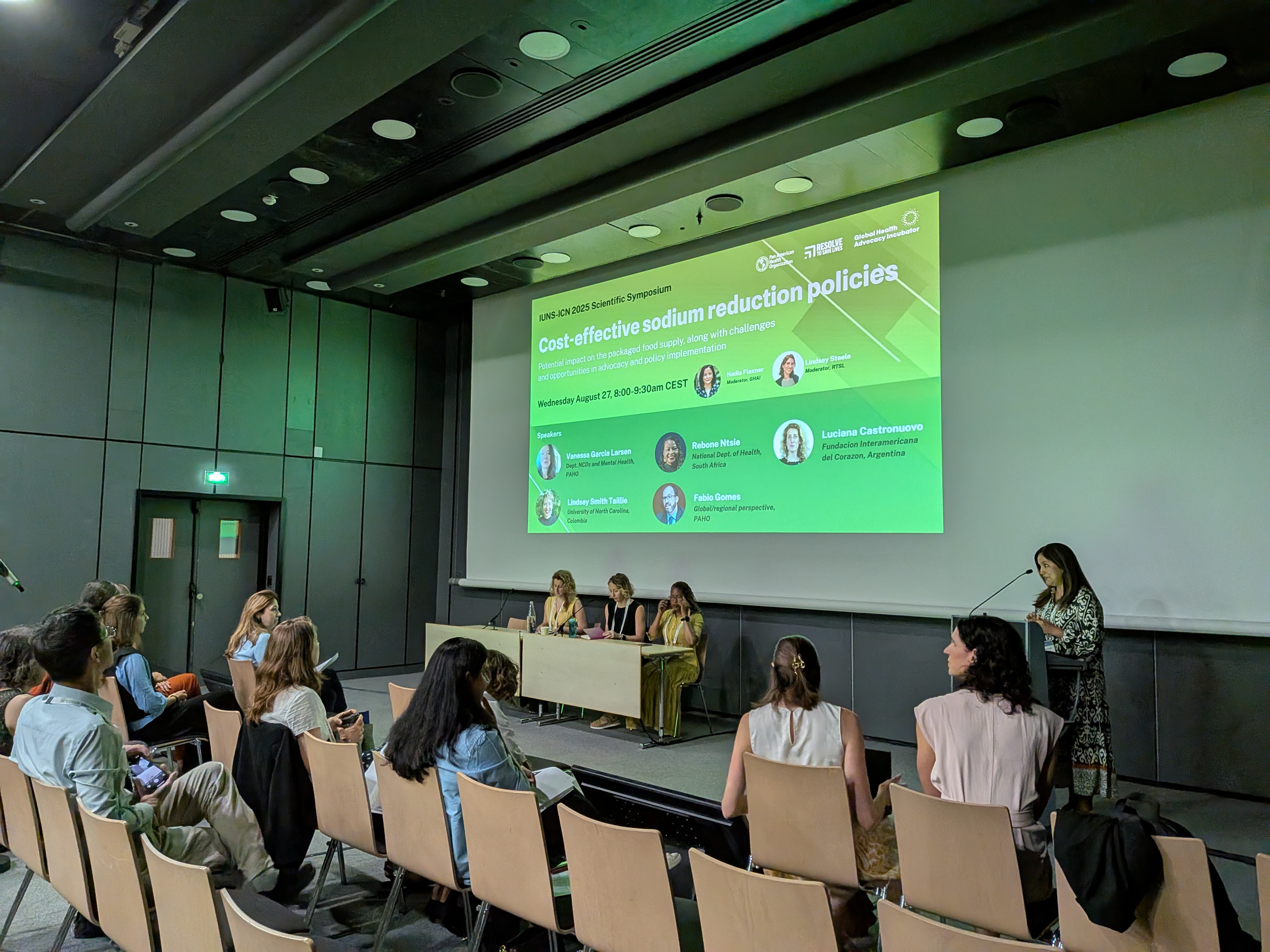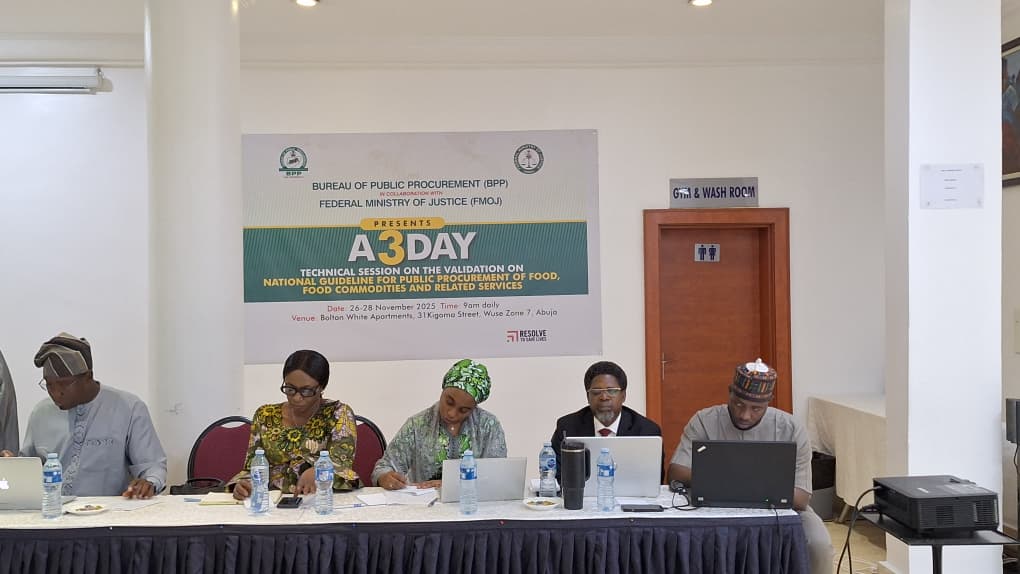Nutrition experts from Resolve to Save Lives, Global Health Advocacy Incubator, and the Pan American Health Organization convened in Paris for the 23rd International Congress of Nutrition to co-host the scientific symposium: Cost-effective sodium reduction policies: Potential impact on the packaged food supply, along with challenges and opportunities in advocacy and policy implementation.
The symposium underscored that sodium reduction policies—particularly front-of-package warning labels (FOPWL) and mandatory sodium limits—are most effective when implemented together. When layered, including with additional measures such as marketing restrictions, school food standards, and taxation, these policies create powerful, reinforcing incentives for both consumers and manufacturers.
- Attendees learned from global experiences: South Africa’s pioneering mandatory sodium limits linked to reductions in hypertension; Argentina’s strong civil society advocacy helping sustain momentum and achieving 94% compliance with sodium limits; and Colombia’s holistic approach combining sodium limits, FOPWL, and taxation to reshape the food environment. From the WHO/PAHO perspective, harmonizing policies across multiple consumer touchpoints sends clearer signals and strengthens compliance.
- A striking takeaway came from UK data: while FOPWL alone could reduce sodium density in the food supply by 36% and sodium limits alone by 14%, implementing both together could drive a 40% reduction—demonstrating the compounding effect of layered strategies.
- The question of the day: How to overcome industry resistance and ensure sustained enforcement. Panelists emphasized the importance of accountability, civil society engagement, and strong governance to protect health policy from conflicts of interest.
Learn more about Resolve to Save Lives’ work toward building healthier food environments.



